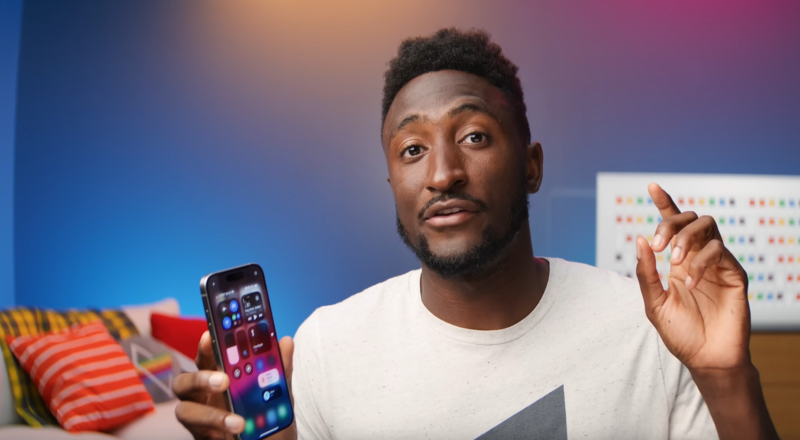In a revelation that has sent shockwaves through the YouTube community, it has come to light that tech giants such as Apple, Google, and others have been using videos uploaded to the platform to train their artificial intelligence (AI) systems. This discovery has left many YouTube creators feeling blindsided and concerned about the implications for their content and intellectual property.
 |
| Enlarge / YouTuber Marques Brownlee discusses iOS 18 in a new video. This specific video wasn't part of the large dataset that was used to train AI models, but many of his others were. |
The Unveiling
The use of publicly available data to train AI is not a new practice. However, the extent to which major companies have been utilizing YouTube content without explicit permission from creators has only recently come to light. This has raised questions about transparency and the ethical boundaries of AI development.
How It Came to Light
Reports began to surface when a group of independent researchers found evidence suggesting that various AI models had been trained using YouTube videos. These findings were corroborated by investigative journalism, which revealed that companies like Apple, Google, and others had been employing these practices to enhance their AI capabilities, particularly in areas like speech recognition, natural language processing, and video analysis.
The Reaction from Creators
The YouTube creator community, known for its diversity and creativity, has responded with a mix of shock, frustration, and concern. Many creators feel that their work is being exploited without proper acknowledgment or compensation. Prominent YouTubers have taken to social media to express their discontent and to demand more transparency from these tech companies.
"Finding out that my videos were used to train AI without my knowledge is a breach of trust," said one popular YouTuber. "We put a lot of effort into our content, and it's disheartening to see it used in ways we never agreed to."
Legal and Ethical Implications
The situation raises several legal and ethical questions. While YouTube's terms of service grant the platform broad rights to user-uploaded content, the extent to which third parties can use this content for AI training purposes remains murky. Intellectual property experts suggest that this could lead to a wave of legal challenges as creators seek to protect their rights and seek compensation for the use of their content.
Moreover, the ethical considerations of using creators' content without explicit consent are significant. The tech industry is already under scrutiny for its handling of user data and privacy issues, and this revelation adds another layer of complexity to the ongoing debate about the responsible development and deployment of AI.
The Response from Tech Companies
In response to the backlash, some companies have issued statements defending their practices. Apple, for instance, has emphasized that it uses data in ways that are compliant with its privacy policies and that it takes the protection of user data seriously. Google has also highlighted that its AI training processes are designed to respect user privacy and comply with legal standards.
However, these reassurances have done little to quell the concerns of the YouTube community. Creators are calling for more concrete actions, such as clearer policies on how their content is used and the possibility of opting out of such practices.
Moving Forward
As the debate continues, it is clear that a more transparent and collaborative approach is needed. YouTube creators are essential contributors to the digital ecosystem, and their voices must be heard in discussions about how their content is utilized.
This incident serves as a reminder of the need for clearer guidelines and regulations around the use of publicly available data for AI training. It also highlights the importance of respecting the rights and contributions of content creators in the age of artificial intelligence.
As the tech industry navigates these challenges, it will be crucial to find a balance between innovation and ethical responsibility, ensuring that the creators who fuel these advancements are treated with the respect and fairness they deserve.
0 Response to "YouTube Creators Surprised to Find Apple and Others Trained AI on Their Videos"
Post a Comment